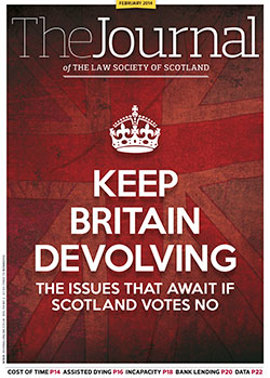Prior statements practice

“Tracing the history of the increasing use of statements in criminal trials may be an interesting topic for the lawyer” (per Lord Carloway, Rehman and Ishaq v HM Advocate [2013] HCJAC 172 at para 49). In A v HM Advocate [2012] HCJAC 29, the court gave detailed consideration to provisions relating to the use of prior witness statements. Practitioners should be aware of, and be ready to implement, a recent practice note by the Lord Justice General (2014 no 1) outlining the expectations of the court when prior statements are to be used during trial.
Criminal trials rely on parole evidence. Reference to a previous statement is an exception to the rule that hearsay is inadmissible. Although an exception, it is a common occurrence. The practice note refers to the increasing tendency to refer to prior statements when they have not been lodged as productions.
Prior statements may be adopted at common law (Jamieson v HM Advocate (No 2) 1994 SCCR 610) or by statute (s 260, Criminal Procedure (Scotland) Act 1995). Inconsistencies in prior statements may be used to elicit the truth or discredit the witness (s 263). The practice note recognises that there may be an unexpected need to refer to a statement. Proceedings, however, should not be unduly interrupted. The practice note requires that a copy of the statement should be available to the presiding judge or sheriff so that he or she can monitor the fairness of the proceedings by reference to the questions asked.
What form should the statement be in? Obviously, a copy of the original should be used. There should be no need for independent proof of the statement if the witness, by reference to a signature, confirms what it bears to be (per Lord Caroloway, Rehman and Ishaq at para 50). Routinely, however, only a typed version of the original statement is disclosed.
In contemplation of use in trial, agents should demand copy signed originals. Indeed, this practice note may be a catalyst to abolish sanitised, police-created versions of original statements. Perhaps a standardised format for recording witness statements is long overdue. It could ensure a more immediate, universal compliance with this practice note.
In this issue
- Cold case examination of early childhood evidence
- Incentivising employee ownership
- The diversity imperative
- Towards a more inclusive democracy
- Journal magazine Index 2013
- Reading for pleasure
- Opinion: Campbell Read
- Book reviews
- Profile
- President's column
- RoS's services for solicitors
- Issues for the Union
- Critical mass
- Is this where it ends?
- Testing capacity
- Making plans for auto-enrolment
- Loosening the purse strings
- Data: don't be caught out
- Punished enough?
- Prior statements practice
- Family business musings
- TUPE: armour not gold-plated?
- Pension policy - a vote winner?
- Scottish Solicitors' Discipline Tribunal
- In with the system
- Check and double-check
- Lender Exchange ahead
- Have you the capital?
- How not to win business: a guide for professionals
- Reflections from the Complaints Commission
- Ask Ash
- Danger spots
- It's the name of the game
- Law reform roundup
- Conference aspires to judicial diversity






